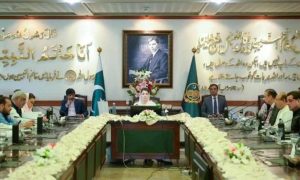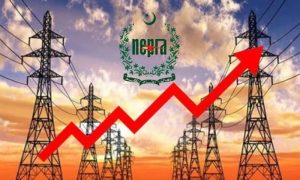ISLAMABAD: Lieutenant General (Retd) Khalid Kidwai, Advisor, National Command Authority (NCA) and former Director General of the Strategic Plans Division (SPD), at a lecture to commemorate Youm-e-Takbeer, on Tuesday said that Pakistan’s successful nuclear tests on May 28 and 30, 1998 restored strategic balance in South Asia and ensured regional peace.
The Islamabad Policy Research Institute (IPRI) as part of its distinguished lecture series organised the seminar titled “Celebrating Youm-e-Takbeer Evolution of Pakistan’s Full Spectrum Deterrence Policy” where the NCA Advisor was the guest speaker.
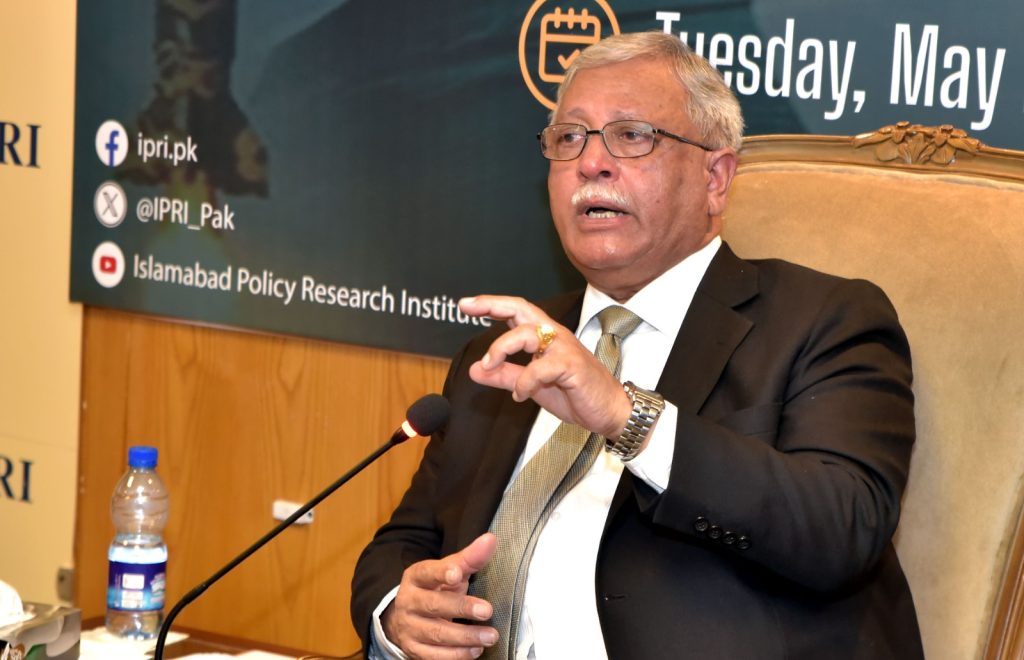
Speaking as guest speaker, Lieutenant General (Retd) Khalid Kidwai said the full spectrum deterrence capabilities which was the combination of the conventional and most modern technology-based weapons capable to respond all threats from the enemy. He said that the phrase ‘full-spectrum deterrence’ encapsulates the cornerstone of Pakistan’s national security policy. “It is crucial to understand the depth and dimensions these three words cover, their evolutionary background, and the strategic impact they generate in South Asia, especially in relation to India,” Khalid Kidwai said.
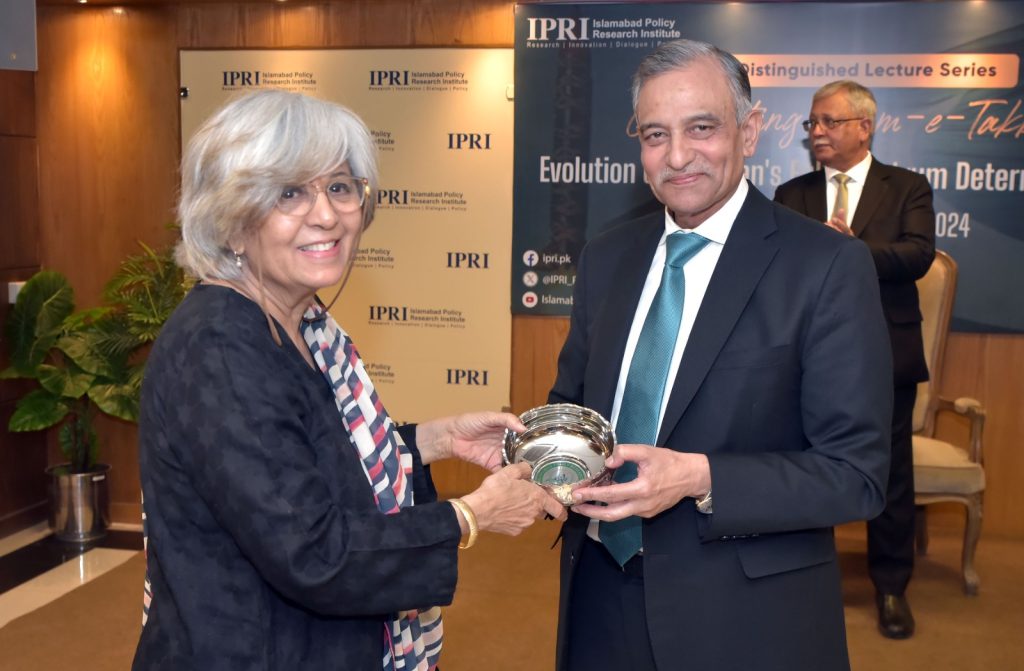
The NCA Advisor said that Pakistan’s journey of nuclear capabilities began with the successful nuclear tests on 28th and 30th May 1998. “Pakistan became the seventh nuclear weapons power, transforming scientific experiments into a potent and robust triad capability. Today, we have operationalized instruments of nuclear capability, held by fully trained operational strategic forces within the Army, Navy, and Air Force. These forces, coordinated by the Strategic Planning Division (SPD), function as a unified strategic deterrence force,” Khalid Kidwai stated.
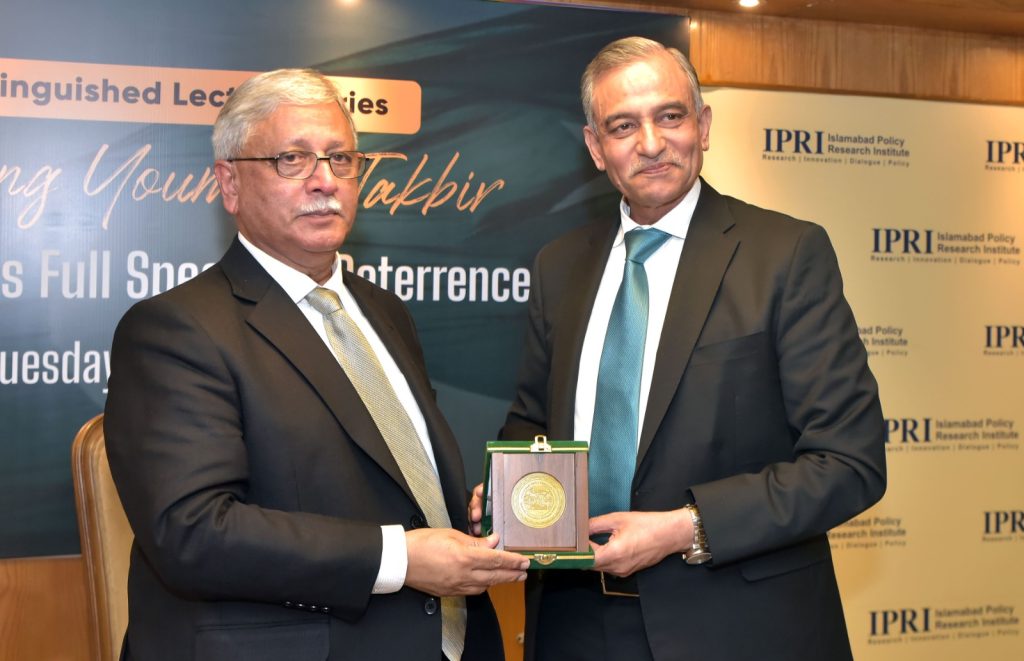
Khalid Kidwai said that the strategic effects of Pakistan’s nuclear capability have imposed significant constraints on India’s military options, maintaining a strategic balance and enforced peace in the region. “Our policy of full-spectrum deterrence has progressively limited the operational options of India’s military, compelling their planners to reconsider strategies such as the Cold Start Doctrine and other aggressive postures,” the NCA Advisor said.
The NCA Advisor maintained that since independence, Pakistan has faced security threats from India. He said that these threats were exacerbated by the unresolved Kashmir dispute and India’s nuclear test in 1974. “The decision to develop nuclear weapons was a strategic necessity, and it has been upheld by successive national leaderships, ensuring our security against external threats,” he said. He said that the global context underscores the critical importance of Pakistan’s nuclear capability. “In the past few decades, the robust nuclear capability of Pakistan has enforced peace in the region. Pakistan does not adhere to the policy of no first use,” he said.
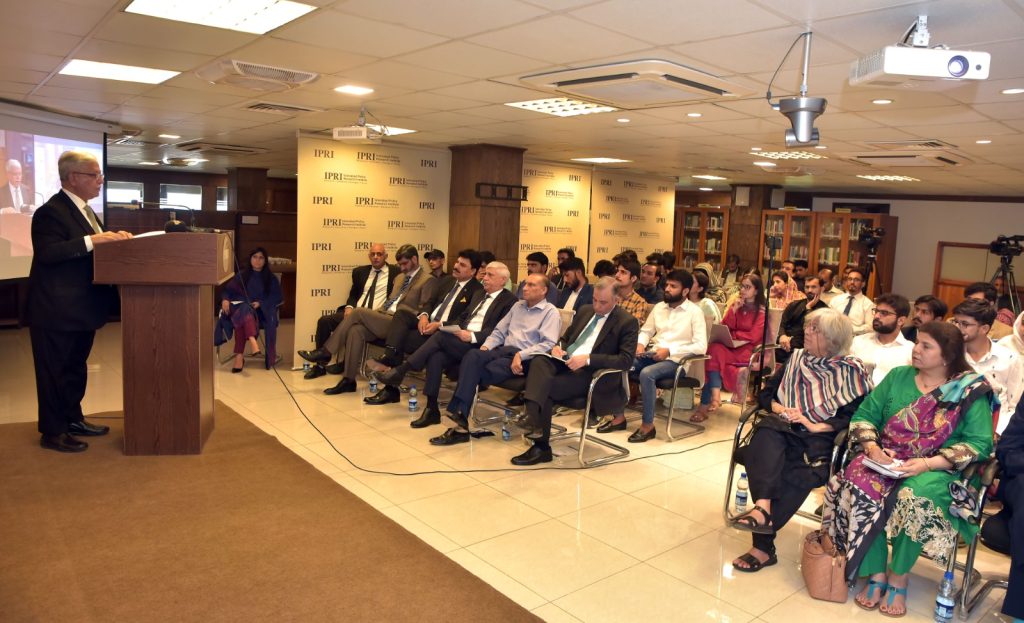
Khalid Kidwai said that Pakistan’s nuclear policy is designed not just as a defense mechanism but as a peace enforcement tool. He argued that the recent political rhetoric from Indian leaders, including Prime Minister Narendra Modi and Foreign Minister S. Jaishankar, lacks military logic and should be seen as misguided bluster.
The NCA Advisor said that Pakistan’s nuclear capabilities, including a variety of ballistic missiles and tactical nuclear weapons, are integrated under a strong command and control system. “This integration ensures seamless coordination between nuclear and conventional military strategies, enhancing our deterrence capabilities.” He said that full-spectrum deterrence means possessing a comprehensive range of nuclear weapons, from strategic to tactical, capable of targeting India’s vast geographical expanse.
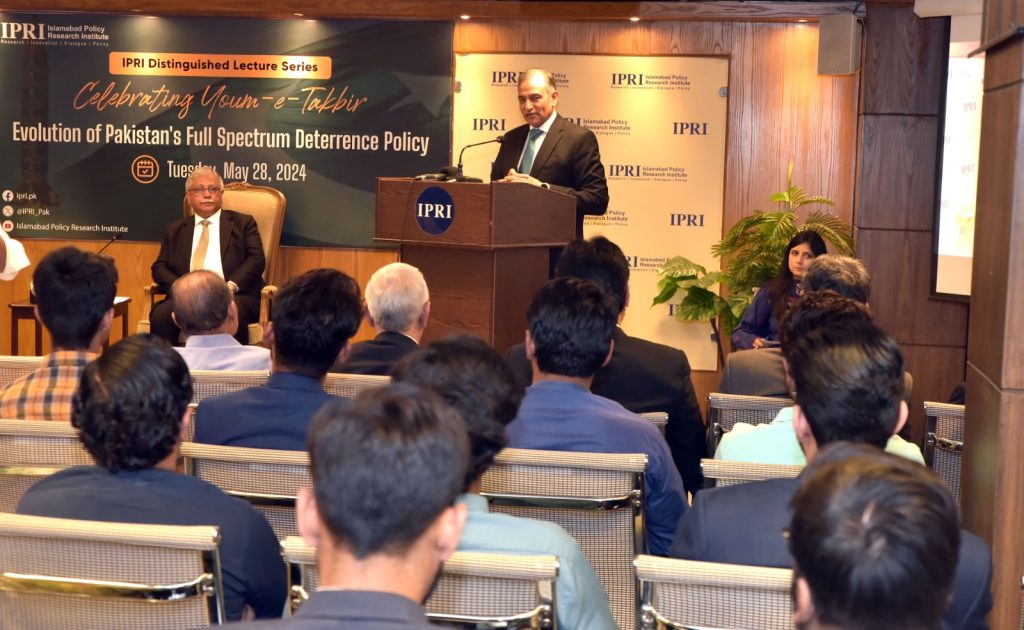
While highlighting the evolution of Pakistan’s nuclear program, Khalid Kidwai said that the evolution of Pakistan’s nuclear program from 1972 to 1998 involved critical political decisions, scientific breakthroughs, and strategic diplomacy. “The second phase, from 1998 to the present, saw the operationalization and development of a robust nuclear capability,” he said. He said this phase included the development of various delivery systems and the enhancement of the country’s command and control structure to ensure their deterrence remains effective.
The NCA Advisor maintained that the policy of full-spectrum deterrence has effectively deterred India from large-scale military operations. “For instance, during the Balakot skirmish in February 2019, Pakistan’s measured and effective retaliation highlighted the strength of our deterrence. The subsequent caution displayed by both India and the international community underscores the effectiveness of our nuclear posture in maintaining strategic stability,” he opined.
While highlighting the significance of Pakistan’s full-spectrum deterrence, Khalid Kidwai maintained that Pakistan’s full-spectrum deterrence ensured that any aggression would be met with a proportionate response. “This policy acts as a constant deterrent, preventing large-scale conflicts and ensuring strategic stability in the region,” he stated. He argued that the integration of Pakistan’s nuclear strategy with military strategy has been key to achieving desired outcomes.
Khalid Kidwai said that Pakistan’s nuclear capability, underpinned by the policy of full-spectrum deterrence, has generated strategic effects that maintain peace and stability in South Asia. “It compels caution and restraint in India’s military planning and ensures that any aggressive posture is met with a credible and robust deterrent,” he maintained. He said that the lessons from global geopolitics and regional conflicts underscore the importance of maintaining a strong nuclear capability to safeguard national security and sovereignty.
President, IPRI, Ambassador (retd) Raza Muhammad in his opening remarks lauded the services of the NCA Advisor to the nation, particularly towards founding the National Command Authority and SPD.
He added that it was after the 1971 dismemberment of Pakistan that the then leadership decided to build nuclear power which was a long journey towards one of the strongest nuclear programmes with all kinds of deterrence. He added that the country had entered the full deterrence spectrum to counter all enemy strategies.












